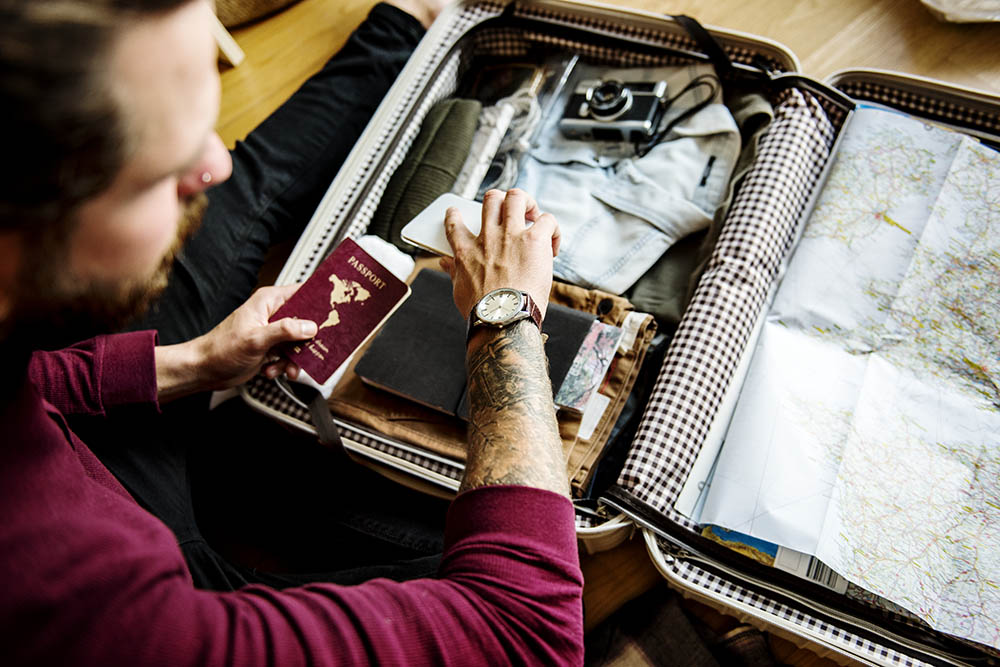Are you celebrating Earth Day and reflecting on how to make more sustainable travel decisions? Or wondering exactly what sustainable travel is? The idea of sustainable travel is to reduce the adverse effects of tourism and at the same time enhance the positive benefits by investing in the local economy and the natural surroundings. There are ways to contrast the negative effects of travel by the use of alternative modes of business travel and being selective about when to travel and not to travel for business.
The benefits of sustainable business travel is helping to manage costs, and to decrease the social impact and the environmental consequences generated by traveling frequently for business. Some important tips to keep in mind for sustainable travel are choosing the right accommodations and transportation, being mindful of your energy use, practicing waste reduction, education and using technology to find more sustainable options. And there’s more…
Keep reading to find out the 10 keys to making sustainable travel decisions.
1. Choose sustainable accommodations
Choosing sustainable accommodations is key for reducing your environmental impact. Consciously-minded hotels such as eco-lodges, guest houses or hotels with green certifications will have less of an impact on the environment by making more environmentally-friendly installations. For example, they might use natural cooling and heating systems like living roofs and vertical gardens to keep hotels at a constant temperature year-round, they might have motion-sensored lights and LED lights to reduce energy consumption, and they might use low-flush toilets to reduce water consumption.
There are many ways a hotel can be more sustainable and by choosing a hotel that makes environmentally-minded decisions, you can help reduce the impact of your business trip.

Want to know more?
Find out the 6 hotel features that business travelers really care about.
2. Seek alternative transportation options
Alternative transportation such as rail is 20 times more carbon efficient than air travel on average. Not only that but if you are traveling within Europe, sometimes it can be even quicker to travel by train if you count all the waiting time for security checks and getting to and from the airport. While airports are usually outside the city, train stations tend to be more centrally located.
If you must travel by plane, try to combine with more environmentally-friendly means of transport. When possible, use ride-sharing services instead of renting a car or taking a taxi. If you are traveling with other colleagues, try to travel together so that you can share transportation to and from the airport. And always prefer walking, biking or taking the bus to driving to and from your meetings.
3. Can a trip be replaced by an online meeting?
Part of sustainable business travel is traveling less and traveling better. Analyze whether the purpose of your business trip can be fulfilled with online meetings before you hit the road. If you’re working with a remote team, for example, meeting in person every once in a while is great for team morale and to exchange ideas. However, cutting back on business travel is important to reduce greenhouse gas emissions.
To travel better you can make more sustainable decisions around travel like prioritizing train travel when possible. Once you’ve decided that traveling is necessary, try to combine meetings with different clients to make the most of your business trip, always prioritizing quality business trips over quantity.

4. Work with suppliers that prioritize sustainability
Supporting local businesses is an important part of a circular economy. You can choose to buy from local markets, and eat at local restaurants instead of chains. When possible, stay at a boutique hotel, which gives you the chance to support local businesses instead of big hotels. You are also likely to have a more personal experience. Favor suppliers that prioritize sustainability. If you’re not sure, you can ask the right questions. Do they have any certifications like LEED or Ecovadis? This will help you determine where their priorities lie.
5. Be mindful of energy use
When you’re on the road, and in your everyday life, be mindful of energy use. Turn off lights and unplug devices when not in use, adjust room temperature, and use natural light when possible. It can be tempting when you’re not at home to throw your energy-saving habits out the window. If everyone thinks like this, it will be hard to get a handle on the climate crisis. This is why being mindful of energy use whether you’re traveling for business, for pleasure, or at home is crucial.
6. Reduce waste
Reducing waste in your everyday life is just as important as when you are traveling for business. This means going paperless. Why print your boarding passes when you can easily download them to your smartphone? Avoid giving handouts when you make a presentation and instead think of digital copies or send a copy of the presentation via email at the end of the day. When it comes to packing, be sure to have a refillable water bottle, pack eco-friendly products, and throw in a tote bag for miscellaneous items.

what to pack on your next business trip
7. Conserve water
Staying at a hotel while on business it’s harder to control the use of water. Some things you can do to stay conscious of water conservation include: taking shorter showers, reusing towels and sheets. Usually hotels will change sheets after 3 days, but if you’re staying for 4, why not forgo the bedding change? Don’t forget to report leaks and any other water issues to avoid wasting water. Just because it’s not your home doesn’t mean you shouldn’t be equally as conscious about conserving water when you’re staying at a hotel.
8. Compensate when there’s no other way
Part of being more environmentally responsible when it comes to travel is choosing airlines that use sustainable aviation fuel (SAF) or support work to reduce carbon emissions. While it is true that carbon offsetting is often not enough, and the real way to travel more sustainably is to limit travel and make it more efficient, there are other ways to compensate for carbon emissions. Whales for example can absorb 1.7 billion tons of CO2 yearly, which is more than the aviation sector produces on a yearly basis! Find ways to give back to the environment through sustainable partnerships.
9. Educate yourself and others
Compensating for your carbon footprint is one of the most known ways of being sustainable, but it’s important to research projects that are actually working on making a difference like energy projects or nature-based solutions. Educate yourself, your colleagues and your employees about sustainable travel and share your knowledge and experience with others to promote sustainable business travel. And be sure to be aware of the most common sustainability myths.
10. Use technology to find sustainable options
Look for apps, websites and travel management companies that help you find sustainable accommodations, transportation, and activities. Favor companies like GetGoing who are working to offer more sustainable solutions to business travel.
Happy Earth Day!
Remember that every small action counts towards sustainable travel and can make a difference in reducing your carbon footprint and protecting the planet.


